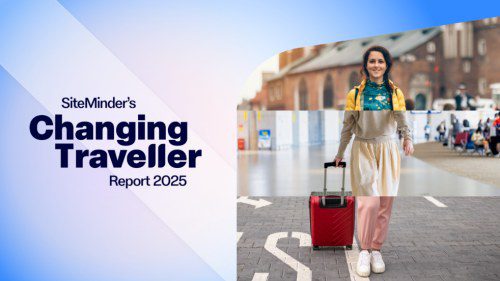Canadian travelers are the world’s most cautious when it comes to AI, according to SiteMinder’s Changing Traveler Report 2025, the largest survey globally on accommodation.
The report from SiteMinder, the world’s leading hotel distribution and revenue platform, is based on insights from over 12,000 respondents across 14 major tourism markets, including Canada. It reveals how the choices of Canadian guests are driving the evolution of the ‘everything traveler’ – a new traveler that blends both emerging and traditional behaviors in response to evolving travel dynamics.
SiteMinder’s research shows that nearly 2-in-5 Canadians (38%) intend to avoid AI in their 2025 accommodation experience – the highest rate globally, followed by Australia and Germany. This reluctance is strongest among Canadian Baby Boomers (aged 60-78) (56%) and Radio Babies (aged 79-96) (61%).
In contrast, Canadians feel most comfortable with more traditional accommodation methods. Thirteen percent will begin their hotel research via family and friends, and 15% will use a travel agent to make their 2025 booking, the highest rates globally in both instances.
When it comes to environmentally-friendly accommodations, Canadians are also reserved. Only half (50%) would consider paying more for an eco-friendly stay, well below the global average of 70%, making them the least likely to do so globally.
SiteMinder’s chief growth officer, Trent Innes, says the research confirms the need for technology to meet the demands of an increasingly multifaceted traveler likely to showcase even more unique preferences next year.
“In an era where guests hold increasing influence over their stays, it’s clear that their evolving needs are both broad and deeply specific. The everything traveler embodies a bold new standard, with the flexibility to pivot between impulsive and considered decisions, international and local travel, and a clear demand for control,” says Innes. “Our research signals to hoteliers that accommodating these nuanced preferences isn’t just about adapting to a trend—it’s about committing to a deep understanding of how specific traveler preferences and behaviors are changing, and keeping a finger on the pulse as they do. In this landscape, data-driven insights become critical for hoteliers to anticipate guest needs and deliver the stay they envision.”



















